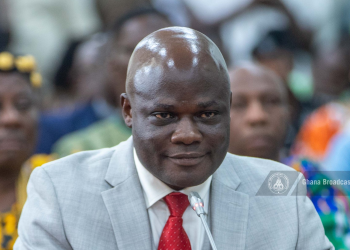The Electricity Company of Ghana (ECG) has been indicted by the Auditor-General for failing to remit GH¢4.2 billion (GH¢4,245,586,079.19) to State-Owned Enterprises (SOEs) and Independent Power Producers (IPPs) under the Cash Waterfall Mechanism (CWM).
GH¢11.5bn collected
According to the 2024 Auditor-General’s Report on the Public Accounts of Ghana, ECG collected a total of GH¢11.5 billion (GH¢11,591,174,225.48) in revenue for 2023.
GH¢8.6bn declared
However, in the revenue report submitted to the Minister for Energy and other authorities, ECG declared only GH¢8.6 billion (GH¢8,637,759,625.94), underreporting its actual collections by GH¢2.9 billion (GH¢2,953,414,599.54).
Only GH¢7.3 billion disbursed
Of the declared GH¢8.6 billion, ECG disbursed GH¢7.3 billion (GH¢7,345,588,146.29) to various beneficiaries under the Cash Waterfall Mechanism, which is designed to ensure equitable payment to stakeholders in the electricity value chain.
GH¢1.2bn not undisbursed
This left a balance of GH¢1.2 billion (GH¢1,292,171,479.65) in undisbursed funds.
The Auditor-General recommended that the Managing Director of ECG should be held liable to account for the unremitted GH¢1.2 billion balance.
Additionally, it called for the Chief Executive Officer and the Finance Director to be held accountable for the GH¢2.9 billion in underreported revenue.
Calls for accountability and transparency
The discrepancies were revealed in the “Report of the Auditor-General on the Public Accounts of Ghana: Public Boards, Corporations and Other Statutory Institutions for the Period Ended 31 December 2024.”
The Auditor-General emphasised that ECG’s actions undermine the financial integrity of the power sector, particularly the Cash Waterfall Mechanism, which was instituted to improve transparency and predictability in payments to power suppliers.
The report’s findings raise critical concerns over ECG’s revenue management practices and threaten to deepen the cash flow challenges facing power producers, who rely on timely disbursements to sustain operations and maintain supply.
Sector implications
The failure to pay GH¢4.2 billion to IPPs and SOEs could worsen the liquidity challenges within Ghana’s power sector, potentially resulting in generation disruptions, power purchase arrears, and supply chain bottlenecks.
As Ghana works toward improving financial discipline and operational efficiency in the electricity distribution sector, the report urges immediate corrective actions and strong enforcement of accountability measures.
The public now awaits the response of the Ministry of Energy, the ECG Board, and regulatory institutions to the Auditor-General’s damning revelations.












